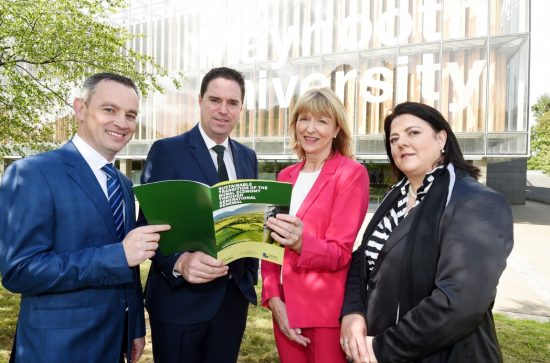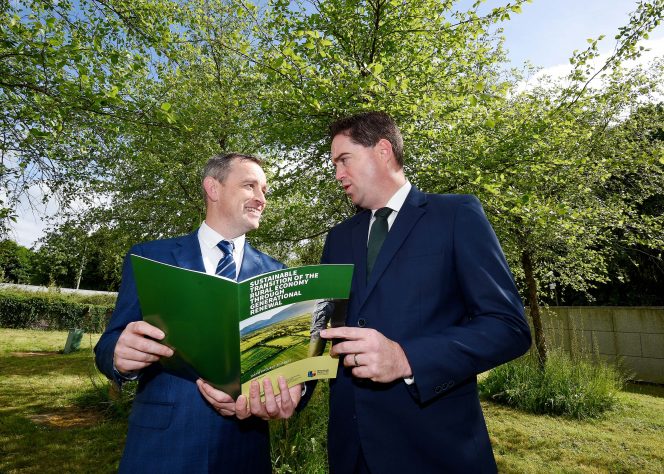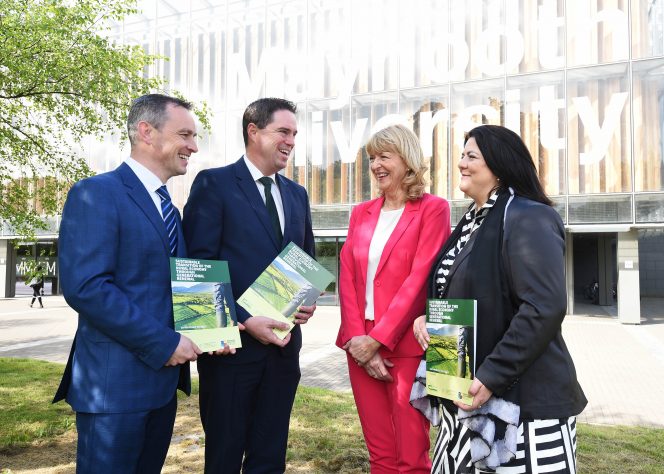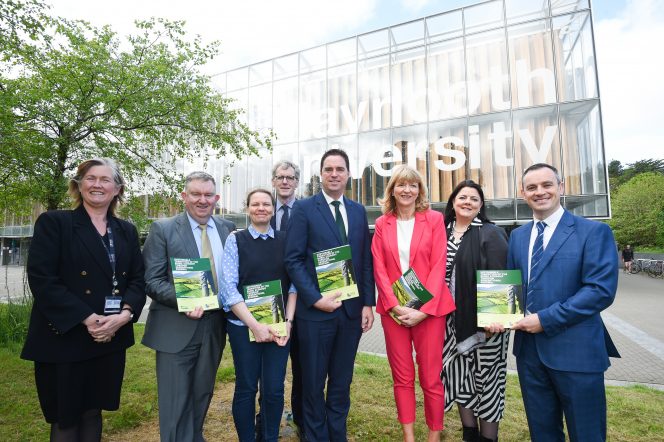
Minister of State at the Department of Agriculture, Food and the Marine with special responsibility for research and innovation, Martin Heydon T.D., today launched a Department-funded research report titled, ‘Sustainable Transition of the Rural Economy through Generational Renewal’, at Maynooth University.
An aging farming population is a major concern to the sustainability of the rural economy in Ireland. Prior research has identified the strongest barriers to innovation in agriculture are at farm level, and relate to business structures, lack of land mobility and aging farmers.
In this context, through a combination of desk-based research, interviews with farmers and agricultural advisors, and a survey of farmers, the dual roles of collaborative farming and retirement income provisioning in facilitating generational renewal was comprehensively explored.
Launching the report, Minister Heydon, said: “Attracting the next generation of farmers is crucial to securing the future of Irish agriculture. This important research funded by my Department looks at many of challenges and barriers to succession and importantly explores potential solutions.
“Ireland currently provides important supports for generational renewal through the tax system and the Common Agricultural Policy. This is an area that is under constant review and the findings of this project will be carefully considered by my Department.”

Dr Michael Hayden and Dr Bridget McNally of Maynooth University, along with Anne Kinsella of Teagasc, led this research project over the past two years.
The key project findings and recommendations include:
· There is significant potential for growth in collaborative farming via alternative business structures in Ireland. However, the area where this growth is targeted needs to be carefully considered by policymakers given the economic vulnerability of many farm enterprises.
· Numerous benefits and challenges are identified with the operation of collaborative farming arrangements. Farmers contemplating entering them need to be made aware of such issues prior to establishment, and to be cognisant that such arrangements are not always successful.
· Many countries in Europe have bespoke subsidised State pension arrangements for the farming community, which recognise farmers as a unique cohort of individuals and incorporate provisions to ensure that the social insurance system extends fully to all individuals within the farming community.
· The Irish pension system has created significant gaps in social welfare pension coverage within the farming community. Lessons learned from the structure of the social welfare pensions system in other European countries could be used to modify the Irish system to assist in closing the gap of pension coverage within the farming community and support generational renewal in agriculture.
· The level of private pension coverage in the farming community is approximately 50% with significant variation with farm systems. Reasons given for low pension coverage levels include: lack of affordability, haven’t got around to setting up a pension, lack of trust in private pension providers, and reliance on other personal savings/assets to fund retirement.
The research team envisage that the learnings from this project will play an important role in supporting the current and next generations of farmers in Ireland.
The report is available here Sustainable Transition of the Rural Economy through Generational Renewal.
 |
 |
